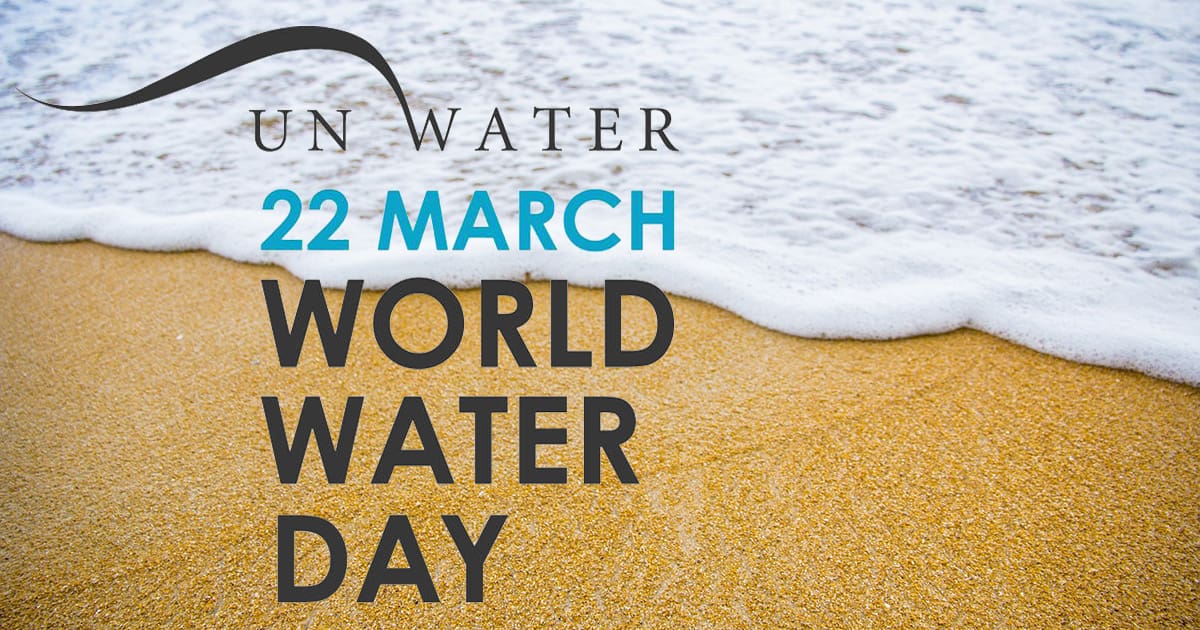International Water Day
We run, then we’ll need water. We make a speech, then we’ll need water. We’re eating food, then we’ll need water. Our hands need a wash, then we’ll need water. If it’s a hot day, then we’ll need water. Water is not only a large part of our lives, but also an essential element of living. We are so lucky to have access to clean water each day whenever we need it, but some are not as lucky. In fact, it is estimated that 790 million people (11% of the world’ population) do not have adequate access to a clean water supply.
Last year, I had the wonderful opportunity to visit the Ecuadorian Amazon, where I learned a lot about the power and influence of water. The Encyclopedia Britannica estimates that one-fifth of the Earth’s running water is carried by the Amazon River. Ironically, many of the Indigenous Villages I visited that surround the Amazon River do not have access to clean drinking water and many are getting sick from water-borne illnesses. It was so sad to see many small children having to skip school due to stomach aches. Initially, I wondered, if there is so much water here, why can’t we just figure out a way to filter the water? Turns out, it’s not that simple.
After a more intense study of the area, I found many mining projects occurring around the villages. These mining projects caused deforestation which led to landslides which broke many of the water filtration pumps in the area. Playing with the kids of the villages after school, I noticed a crack in the middle of the soccer court. “It’s because of ‘el movimiento’,” one mother told me, referring to the movement of land due to the landslides. By the time I reached the village of Yunganza, the filtration system had been broken for over 6 months, during which time children were still drinking from water fountains at school, although everyone in the community was warned to boil their water. This drew my next question, why doesn’t the government fund new filtration projects?
Alicia Vega, the president of water in Yunganza, told me that they had asked the government for aid, but government officials told her to just pack up and move elsewhere. Vega, an Indigenous Shuar woman, has grown up in this village, just as all of her ancestors. The area is full of beautiful waterfalls her community considers sacred, of petroglyphs and ancient Shuar drawings, of Shamans that know every plant of the area as well as their various functions, of elders that only speak the Shuar language, and of children who have come to call this area home. The Shuar culture and heritage is lived and celebrated here, yet rather than investing in the vibrant community, the government would rather they all leave so that the mining projects could expand. While the mining can bring economic benefit to the country and job opportunity to the villagers who live in these remote areas, it comes at the cost of nature and health.
Despite all of these obstacles, I was inspired by the resilience of the Shuar community who gathered together and pushed through the difficulty. For the time I was there, I helped the community by participating in a ‘Minga’. The community holds many Mingas in order to protect each other and keep each other well. A Minga entails a collaborative work system that dates back to ancient times. It refers to the commitment, contract, or work agreement between a group of people. Within this particular Minga, over twenty members of the community or all ages from teens to elders signed up to repair the water filtration system. When one signs onto a Minga, they will work in rotation on a particular project, and in the future, if anyone who signed up needs help with their own project, then the same group will all help the other person. In this way, it’s like a community-based insurance plan. Each day, we’d take an hour-long hike through the Amazon to the ‘water tomb’, as they called it. And each day, our group felt more hopeful.
By the end of my time there, the water tomb was complete, and we all gathered together for a traditional Shuar meal, complete with fresh, cool water. Today, many of us will walk to our fridges, click a button, and water will start pouring out, but it did not just appear there. Take a moment to think of the journey of the water, the funding of the pipes, the maintenance workers that keep everything running. Every time we take a sip of water, let us imagine our own grandmothers hiking through the Amazon to fix the pipes for their grandchildren. Let us imagine the community efforts around the world centered on bringing that cold refreshing sip to our lips. This week and every week, as we celebrate #InternationalWaterDay, let us be more cognizant of our responsibility to limit water-waste, to fund sustainable water projects around the world, and to appreciate what keeps us alive.
Chloé Bergeron,
Intern with the CM’s NGO presence at the UN
congregationofthemission-un-ngo.com
Tags:







0 Comments